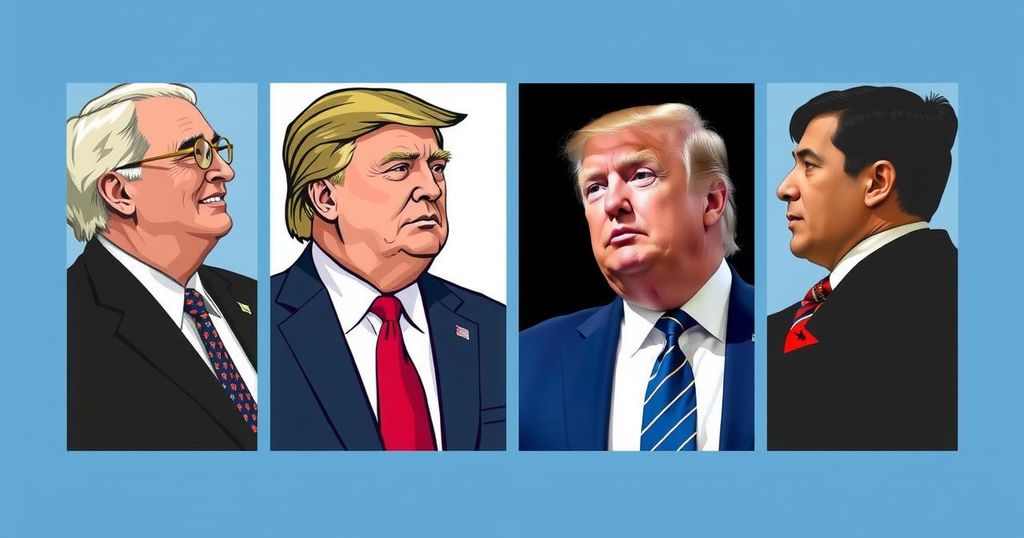In light of Donald Trump’s imminent presidency, several Democratic governors are adjusting their critical rhetoric in favor of establishing a cooperative relationship. They express a desire to collaborate on infrastructure and shared priorities while remaining committed to opposing certain policies, particularly regarding reproductive rights and civil liberties. This strategic balancing act reflects the complexity of governance in a polarized political climate.
As President-elect Donald Trump prepares to assume office, several Democratic governors are reevaluating their stance towards his administration. Historically critical of Trump, these governors now adopt a cautious approach to foster a collaborative relationship while upholding their party’s values. New Jersey Governor Phil Murphy articulated this balancing act, emphasizing the duality of defending core beliefs and seeking commonalities on crucial issues such as infrastructure.
New York Governor Kathy Hochul similarly aims to oppose Trump on matters like reproductive rights, yet remains optimistic about potential partnerships. Following Trump’s recent electoral victory, Hochul noted a productive conversation with him, citing shared priorities in areas that could benefit from federal support. While some Democrats maintain a combative approach, such as California Governor Gavin Newsom, others like Massachusetts Governor Maura Healey have softened their rhetoric in light of their new roles.
This strategic shift reflects a broader ambition among Democratic governors to navigate the forthcoming challenges posed by the Trump administration, finding avenues for cooperation while guarding progressive values. Michigan Governor Gretchen Whitmer encapsulated this perspective, indicating a desire to focus on shared priorities rather than aggression. With the uncertainty surrounding Trump’s policy direction, these governors are poised to adapt their strategies as they endeavor to ensure that their states’ interests are represented.
The political landscape post-election reveals a significant shift among Democratic governors who previously voiced strong opposition to President-elect Donald Trump’s policies. As they prepare to work with Trump’s administration, the governors are confronted with the challenge of negotiating their party’s priorities while fostering a cooperative rapport with a Republican administration. This transition underscores the complexity of state-federal relations and the necessity for political leaders to reconcile their principles with the pragmatic needs of governance in an evolving political environment.
The transition from vocal opposition to strategic cooperation illustrates the dynamic interplay between state governors and federal authority. The necessity for collaboration in areas such as infrastructure and shared values on civil liberties presents an opportunity for constructive engagement with the incoming Trump administration. As these governors navigate this new terrain, their willingness to adapt will be critical for addressing their constituents’ needs while defending progressive principles against potential challenges posed by the federal agenda.
Original Source: mynorthwest.com






